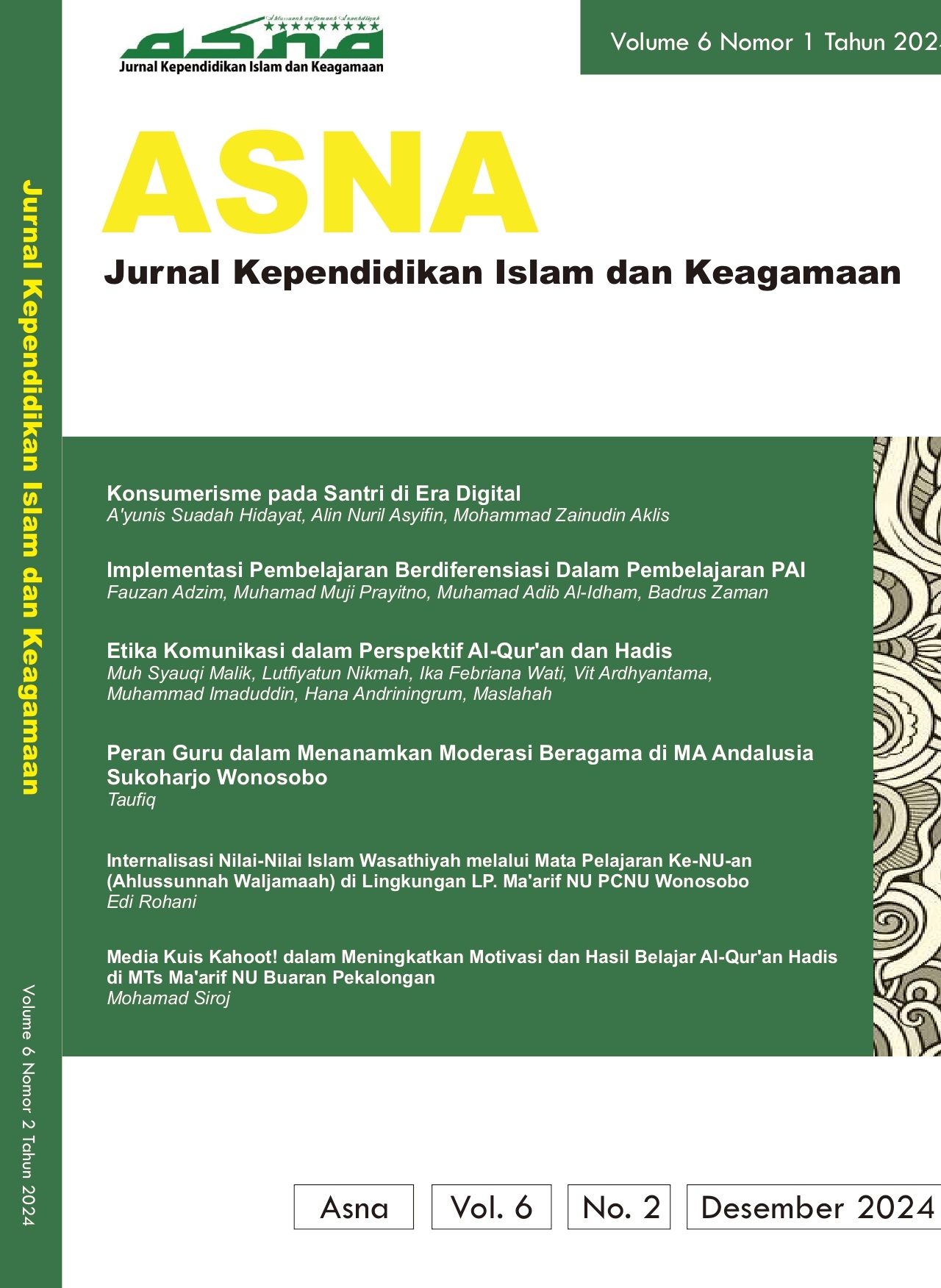IMPLEMENTASI PEMBELAJARAN BERDIFERENSIASI DALAM PEMBELAJARAN PAI
IMPLEMENTATION OF DIFFERENTIATION LEARNING IN PAI LEARNING
Abstract
This study investigates the application of differentiated learning in Islamic Religious Education (PAI), emphasizing its principles and implementation strategies to address diverse student needs. Using library research, the analysis focuses on adapting teaching approaches to students’ varying abilities, interests, and learning styles. Differentiated learning aims to enhance engagement, deepen understanding, and foster the integration of Islamic values in daily life. Findings highlight the significance of effective curriculum design, assessment methods, and classroom management in achieving meaningful learning outcomes. However, challenges such as resource limitations and teacher readiness require strategic solutions. Practical recommendations include continuous teacher training, resource development, and fostering collaboration among educators, parents, and communities. The study concludes that differentiated learning can improve educational quality by creating inclusive and adaptive teaching environments, particularly in religious education.








